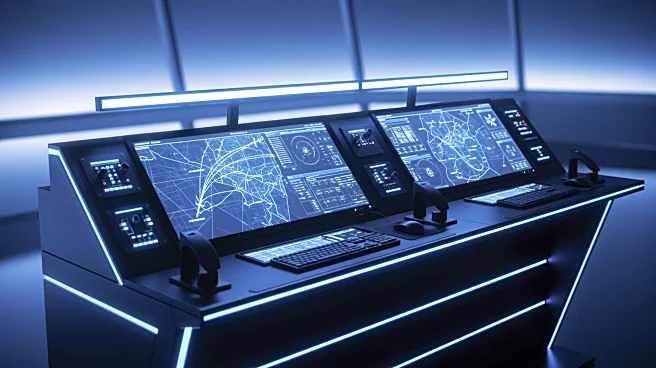What's Happening?
TP-Link has launched a series of new Wi-Fi 7 routers, including the Archer BE9700 and Deco BE68, aimed at improving home networking experiences. These routers are designed to offer faster and more reliable
internet connectivity, making them ideal for gaming and other high-demand digital activities. The Archer BE9700, priced at $200, provides a significant upgrade over standard ISP-supplied routers, offering speeds up to 1.1 Gbps for seamless downloads and connectivity. The Deco BE68 mesh system is noted for its ease of setup and affordability, providing robust coverage throughout the home. These products represent a shift towards more accessible high-performance networking solutions, catering to both tech enthusiasts and everyday users.
Why It's Important?
The introduction of affordable Wi-Fi 7 routers by TP-Link is significant as it democratizes access to high-speed internet technology, which was previously limited to more expensive models. This development is crucial for enhancing digital experiences in homes, particularly for activities like gaming, streaming, and remote work that require stable and fast internet connections. By offering these advanced routers at competitive prices, TP-Link is likely to influence market dynamics, pushing other manufacturers to innovate and reduce prices. Consumers stand to benefit from improved internet performance without the need for costly upgrades, potentially increasing productivity and entertainment quality.
What's Next?
As TP-Link's new routers gain traction, other companies in the networking industry may respond by releasing their own affordable Wi-Fi 7 models, further driving competition and innovation. Consumers can expect a broader range of options in the market, potentially leading to better features and lower prices. Additionally, as more households adopt these advanced routers, there may be increased demand for compatible devices and services that can fully utilize the capabilities of Wi-Fi 7 technology. This could spur advancements in smart home technology and IoT devices, enhancing overall connectivity and automation in homes.
Beyond the Headlines
The shift towards affordable high-speed routers could have broader implications for digital equity, as more households gain access to reliable internet, potentially reducing the digital divide. This accessibility can empower underserved communities, providing them with the tools needed for education, remote work, and digital engagement. Furthermore, the increased adoption of advanced networking technology may drive innovation in related fields, such as cybersecurity, as more devices become interconnected, necessitating robust security measures to protect user data and privacy.










